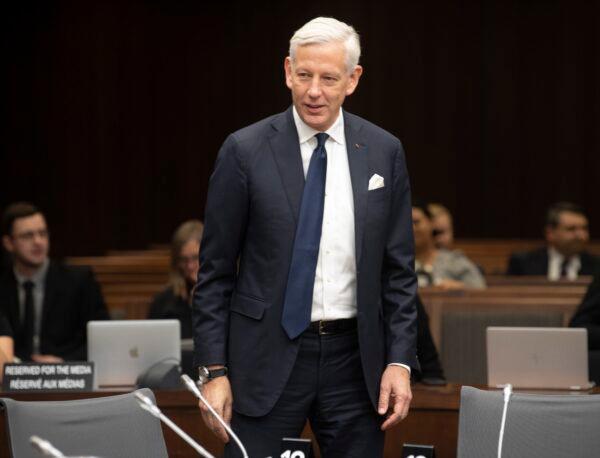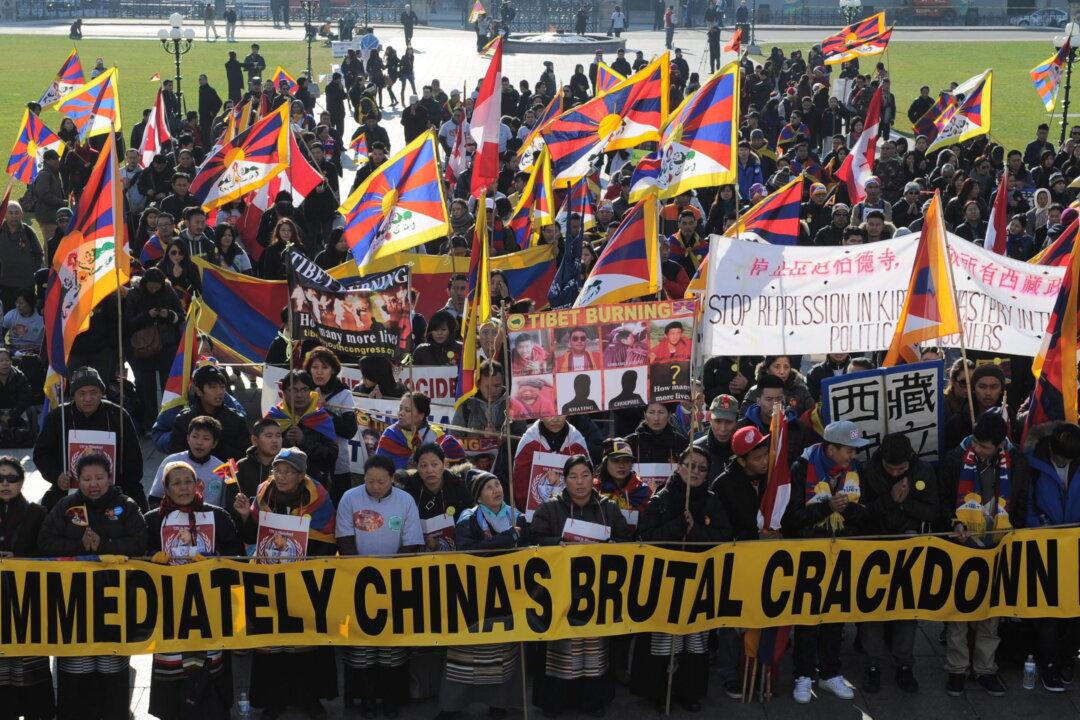An official said the Canadian ambassador to Beijing’s recent visit to Tibet was highly scripted and under constant surveillance by the Chinese Communist Party (CCP).
“He [Dominic Barton, Canada’s ambassador to China] was able to visit the monastery, a school, meet with senior officials at the Tibetan government and visit some of the regions outside of Lhasa. But again, a highly scripted visit,” said Shawn Steil, Executive Director of Greater China Policy and Coordination at Global Affairs Canada.
“And I think the ambassador would attest that it’s very difficult to break away from your handlers and the constant surveillance you might have.”
When asked by the Canada-China committee on Tuesday if it’s normal for ambassadors, diplomats and journalists to be under surveillance and followed by the CCP while they are in Tibet, whereas the members of the CCP can come to Canada and go around as they please, Steil replied: “I wouldn’t find that normal.”

Barton visited the Tibetan capital of Lhasa and nearby Shannan prefecture from Oct. 26 to Oct. 30, at the invitation of the Chinese authorities, with a group of other diplomats.
“This was the first visit by a Canadian official since 2015,” Steil said, adding that his department has been requesting the CCP for it, and only with a travel permit and invitation from the Chinese authorities will it be possible to enter the Tibetan Autonomous Region.
“Unfortunately, the limited access Canadian officials have to the Tibet Autonomous Region in China means that few officials have first-hand experience with the situation in Tibet,” Steil said.
Facade
In June, the International Campaign for Tibet (ICT), a Washington-based advocacy group, warned members that the CCP’s move to invite foreign diplomats to visit two Tibetan areas in Sichuan province “provides little insight on the welfare of the Tibetan people.”“It is clear that handpicked government delegation visits are managed by Chinese authorities as an integral part of a global strategy to hide the realities of what is happening in Tibet today and to try to dominate and control the conversation around Tibet and, by doing so, further China’s political agenda and power,” the ICT wrote.
“Through such officially arranged trips, where the diplomats do not have unhindered and independent interaction with ordinary Tibetans, the Chinese authorities are seeking to obscure their covert and coercive policies, while at the same time restricting meaningful engagement with the situation on the ground for journalists and governments.”
‘There’s Reason to Be Pessimistic’
Asked if there is the possibility of a dialogue between Tibet and the CCP, Steil said “there’s reason to be pessimistic” about the Chinese regime’s openness to engage in one.“The signs are not there, at least as we see them,” Steil told the committee, adding that the CCP has only “become hardened over time.”
The CCP “continue[s] to intensify its crackdown on Tibetans, with increased surveillance and forced patriotic education. Acts of protests by Tibetans could result in detention, or worse. To the world’s horror, there has been more than 150 self-immolations by Tibetan Buddhists during this period,” said Steil.
According to Steil, the CCP mandates monks from the Sera Monastery in Lhasa undergo “patriotic education” before they can go to the monastery. This has resulted in a dwindling number of monks, from 600 in 2015 to 400 in recent years, not neglecting the fact the monastery has a capacity for 2,000 monks.
The suppression of religion by the CCP also extends to the Xinjiang Uyghur Autonomous Region where the CCP tore down minarets from mosques and replaced them with Chinese-styled pagodas.
But “the most insidious part” of the CCP’s religious persecution is to “recognize” a Buddhist association “as the authority of Buddhism in China. Outside of that, there is no recognition, and we’re seeing increasingly that party doctrine is becoming a requirement to be inserted into religious doctrine, in all religions,” Steil said.
Language, Culture, and Religion Threaten the CCP
On Nov. 12, Dr. Tenzin Tsultrim, visiting research fellow at the Tibet Policy Institute, told the Geneva forum the reason the CCP wants to destroy the language and culture of Tibetans is because it wants to destroy Tibetan identity.He added that when the CCP realised religion also plays a significant role in Tibetan identity, it began to consider religion as a threat and started the persecution of the Tibetan monks.
The CCP stationed about 21,000 Chinese communist members in 2011 “across Tibet to observe and scrutinise the movement and activities of the Tibetan people.” Tsultrim said.
Between 2012 and 2016, the CCP intensified its surveillance system, covering over 3 million residents “to monitor the potential threat of so-called religious extremism including targeted individuals on the watch list.” What came next was the systematic eradication of traditional values and tradition of the Tibetan people, Tsultrim added.





